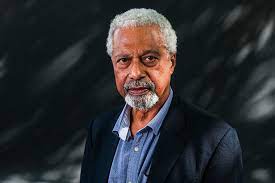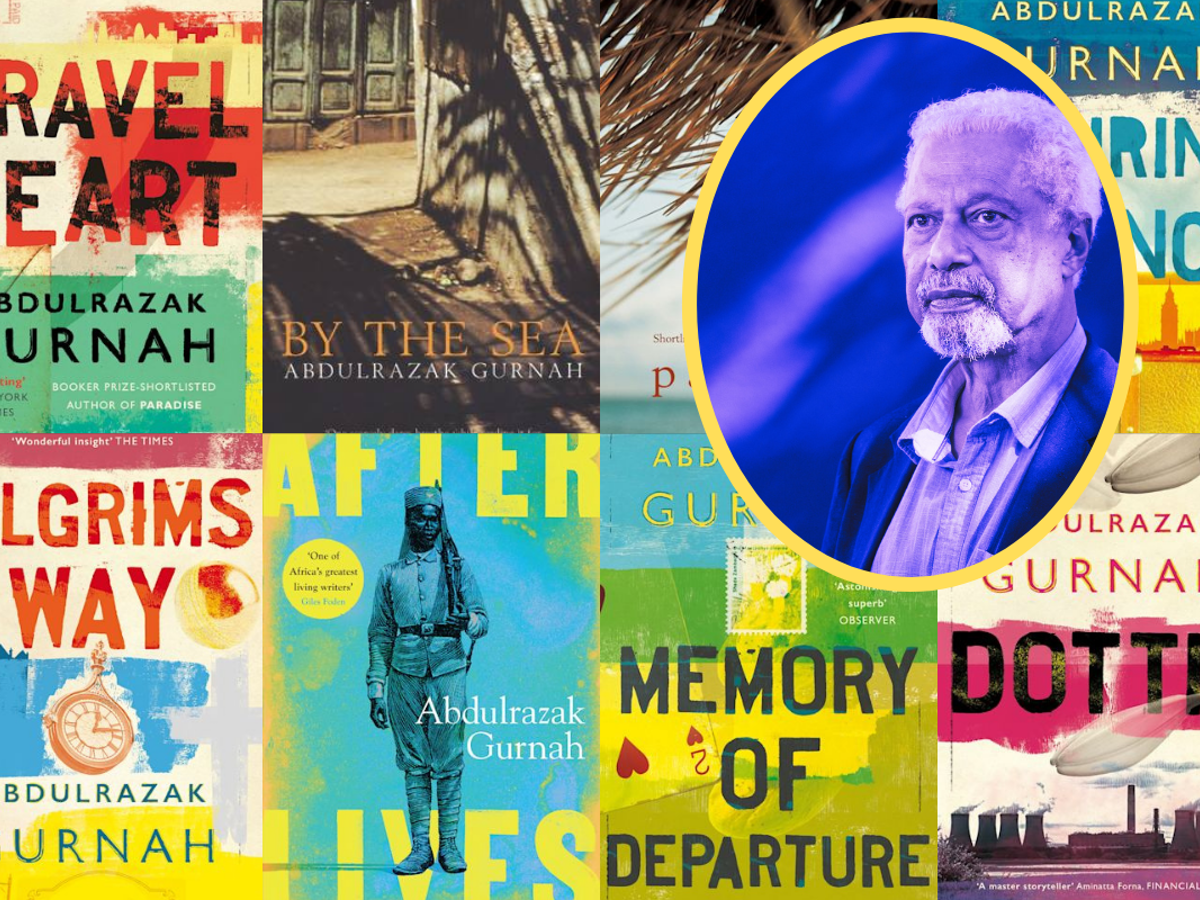
Gurnah was recognized for his uncompromising and compassionate penetration of the effects of colonialism and the fate of the refugee in the gulf between cultures and continents.
Abdulrazak Gurnah’s writing explores immigrant life, dislocation, power and shame. His latest novel, Gravel Heart, follows Salim, a timid and troubled child, from his boyhood in Zanzibar through his painful coming-of-age as an immigrant in England. Widely praised for its insight and sensitivity, the novel — Gurnah’s ninth — has been called a “quiet masterpiece.”
Gravel Heart reflects Gurnah’s own story. Born in Zanzibar in 1948, he left the island — off the coast of East Africa — in the midst of political turmoil and violence in the late 1960s. He arrived in Canterbury, England, where he pursued engineering, then switched to English literature, and eventually started writing.
He has written 10 novels and one short story collection throughout his career. His first book, the novel Memory of Departure, was published in 1987.
Gurnah is best known for his 1994 novel Paradise, which was shortlisted for the Booker Prize and the Whitbread Prize. His other notable works include 2005’s Desertion and 2001’s By the Sea. His most recent work is the 2020 novel Afterlives.
Gurnah, whose native language is Swahili but who writes in English, is only the sixth African-born writer to be awarded the Nobel for literature.
Anders Olsson, chairman of the Nobel committee for literature, called him “one of the world’s most prominent post-colonial writers.”
He said Gurnah’s characters “find themselves in the gulf between cultures … between the life left behind and the life to come, confronting racism and prejudice, but also compelling themselves to silence the truth or reinventing a biography to avoid conflict with reality.”
The prize was announced in Stockholm by Mats Malm, the permanent secretary of the Swedish Academy.
 “Stumbled into” writing after arriving in England
“Stumbled into” writing after arriving in England
In an interview a few years back to CBC Radio, Gurnah talked about the xenophobia and racism he’s witnessed in cities around the world — a major theme in his novel Gravel Heart. Here are some excerpts from his interview:
“When I started to write Gravel Heart, I wanted to capture why it feels so bad to be living so far away from people you care for. I was thinking of the ongoing conversation that Salim, the protagonist, was having with his mother through their letters. Their relationship is potent, and he hasn’t forgotten about her. But there are things he cannot write about because of the distance, which can create room for misunderstanding, room for upsetting her. There’s a reticence that comes out of sorrow — when people are sad, they don’t always know how to speak about it. He continues writing. Maybe he’s also confiding to himself; maybe he’s doing that thing that people do when they write in a journal.”
“There is a way in which sorrow is misunderstood as a kind of self-indulgence. I use what we call homesickness. At some point Salim says that, for years, he has felt homesick. Now, a general reaction would be to say it’s an adolescent thing. And, if you’re in your sixties like me and you say to people ‘I feel homesick,’ they look pityingly at you. It’s not something that is understood as a serious and deep longing, which people in their very last breath probably still feel if they’re dislocated. There are certain kinds of sorrows, which you are not supposed to feel – sorrows that you should outgrow.”
“When you go to London, you notice it’s a multicultural city. In other cities you see the same thing. Visibly things look different. But the language with which outsiders are spoken of and the language which the state treats outsiders is actually, in some cases, worse. The register has simply evolved into something else rather than becoming more humane. I’m afraid something still needs to be done — people still need to be saying things and campaigning and persuading and so on – when it should be perfectly obvious that we should be past these inhumane and obnoxious, confused notions of privilege and race.”
Nobel Prize
The 10 million Swedish kronor ($1.5 million Cdn) prize, which has been given out since 1901, recognizes authors who have “in the field of literature the most outstanding work in an ideal direction.
In his will, Swedish industrialist and inventor of dynamite, Alfred Nobel specifically designated the Swedish Academy as the institution responsible for the Nobel Prize for literature.
The winners are always announced in October and the Nobel Prizes are presented on the Dec. 10 anniversary of Nobel’s death in 1896.
Normally, the prizes are presented in Sweden, alongside a lecture by the 2021 recipients. Due to the COVID-19 pandemic, the lectures and the ceremony will be virtual.
American poet Louise Glück won the prize last year for her “unmistakable poetic voice that with austere beauty makes individual existence universal.”
Glück was a popular choice after several years of controversy. In 2018 the award was postponed after sex abuse allegations rocked the Swedish Academy, the secretive body that chooses the winners.
The awarding of the 2019 prize to Austrian writer Peter Handke caused protests because of his strong support for the Serbs during the 1990s Balkan wars.
Two Canadians have won the prize in the past: Saul Bellow (a Canadian-born American) in 1976 and Alice Munro in 2013.
Other past winners include American singer-songwriter Bob Dylan, Russian historian and essayist Svetlana Alexievich, Irish poet Seamus Heaney and American novelist Toni Morrison.
Nobel prizes are also given for chemistry, physics, medicine, peace and economic science.
German scientist Benjamin List and Scottish-born scientist David MacMillan won the chemistry award for finding an “ingenious” new way to build molecules that can be used to make everything from medicines to food flavorings.
Americans David Julius and Ardem Patapoutian won the Nobel Prize in Medicine for their discoveries into how the human body perceives temperature and touch.
The physics award was split between Giorgio Parisi of Italy for explaining disorder in physical systems and Japan’s Syukuro Manabe and Germany’s Klaus Hasselmann for their work in developing forecast models of Earth’s climate.
The peace prize will be announced Friday, Oct. 8. (Today)
The economic science prize will be announced on Monday, Oct. 11.
____________________
Courtesy: CBC Radio